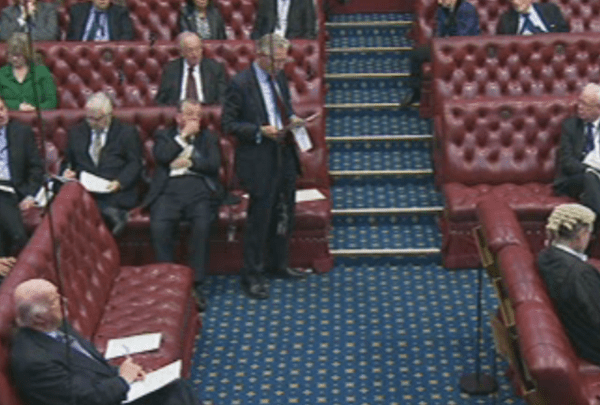Peers are spending today debating the Leveson report. They’ve been at it for an hour and a half, and will continue debating until 5pm, but the first few speeches have yielded some interesting points to chew on.
Labour’s Baroness Jones of Whitchurch devoted a great deal of her speech to the damage that the ‘dark arts’ of the media had done both to private individuals and to celebrities. She described the distress of the victims going through the inquiry, and contrasted it with the response of the government in rejecting calls for statutory underpinning. The terrible treatment of those experiencing terrible bereavement was the reason the Inquiry was set up, and those in favour of statute now say the victims have been betrayed. No doubt Chris Bryant and Max Mosley will make the same argument at our Spectator debate on Leveson at the end of January. But those trying to avoid statute would argue that the most important thing for the victims is not statute per se, but a new system of regulating the press that prevents these abuses taking place again.
Newspaper editors produced their own proposals for the independent regulator yesterday: one backed not by Royal Charter but a charitable trust. This would examine whether a new press regulator was sticking to its purpose and holding newspapers to account. This will not satisfy the campaign group which has taken many of the victims under its wing, Hacked Off, which produced its own ‘clean’ draft legislation earlier this week.
Peers also seem unimpressed with the way the industry has reacted to the report. The Bishop of Norwich told colleagues that ‘there has been surprisingly little public penitence’ and that the industry had instead resorted to ‘self-justification’.
Meanwhile Conservative Lord Fowler attacked newspaper proprietors, saying that ‘rather than admitting that there has been an abuse of power, they seem to fear that they have been unfairly put upon’.
There is a risk that the media appears unwilling to change, or even incognisant of the abuses which led to Leveson in the first place. That would make it more difficult to sell the non-statute route to the public, and to those Tory MPs in particular who continue to back Leveson’s ideas.
Today’s debate has no binding vote, but as Labour still plans to put its own draft legislation to a Commons vote by the end of January, those proponents of press freedom would do well to listen to some of the concerns expressed today.
Is Leveson a fundamental threat to a free press? On Wednesday 30 January, the Spectator hosts a debate between advocates of statutory regulation Chris Bryant and Max Mosley and those against statute, Richard Littlejohn, Paul Staines and John Whittingdale. You can book tickets here.







Comments